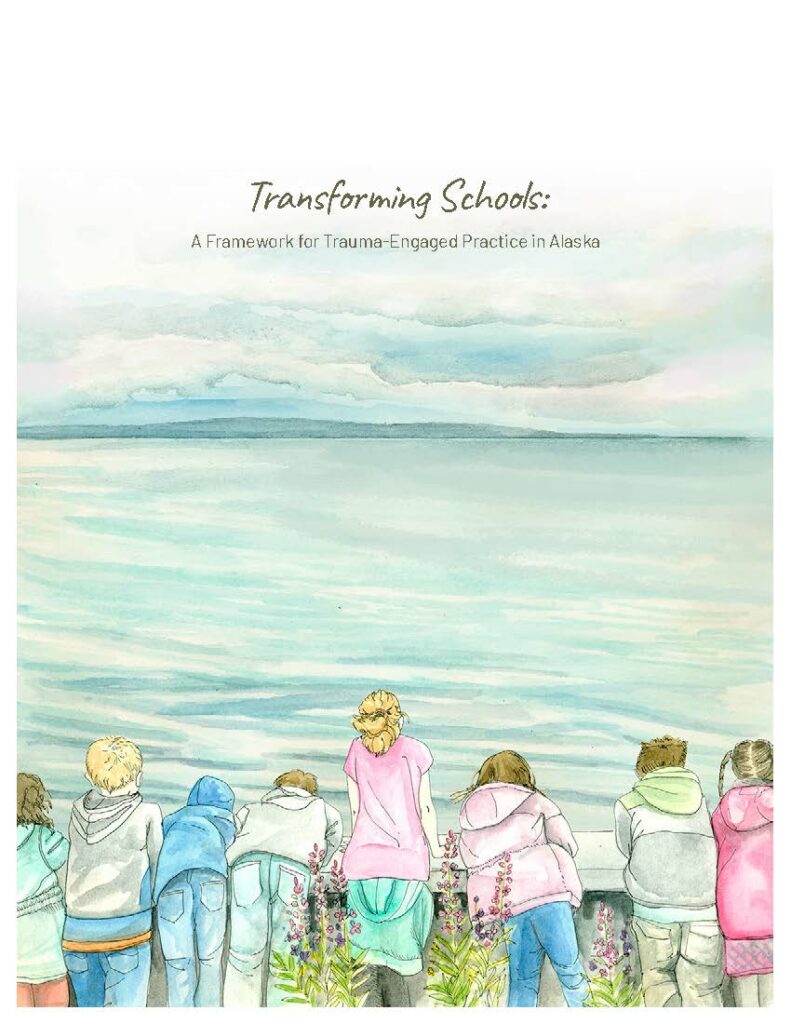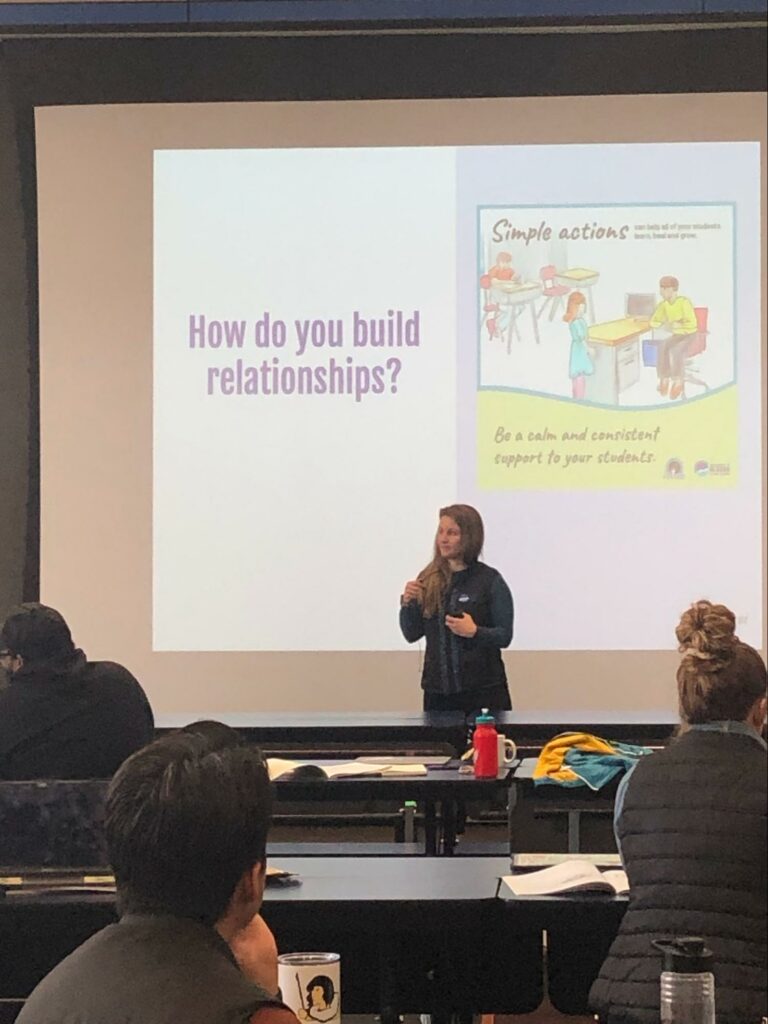Building Social Emotional Competency in Alaskan Students

Conditions for Learning Team

“Everyone needs to calm down– we should do some soup breathing.”
These words we might expect to hear from a teacher or parent were actually spoken by an Alaskan 1st grader, who then invited the office staff of his elementary school to join in a breathing exercise. Mindful breathing is one of many self regulation strategies being taught to students across the state as schools strive to cultivate social emotional competency for students and implement the trauma engaged schools approach promoted in Transforming Schools: A Framework for Trauma Engaged Practices in Alaska published by AASB and DEED in 2019.
Following the disruptions of the pandemic, this work is more important than ever. Schools across the state and nation are struggling with mental health and behavior challenges at the same time that many schools are also struggling with staffing vacancies. The CDC recently released a guide recognizing the importance of supporting well-being in schools and offering strategies. It can be hard for schools to take time away from academics, especially while worrying about learning losses post-COVID. However, as the guide reminds us “the work schools do to promote student mental health and well-being helps them achieve their educational mission” because this work optimizes conditions for learning.

The Transforming Schools framework offers schools Alaska-specific strategies and tools for building schools that promote well being through developing skills for resilience in students and staff, and cultivating strong relationships with families and communities. In the years since publication of the framework, AASB and DEED have also developed a suite of resources including the Toolkit and Video Library, to help schools put this approach into practice. Many schools are already implementing some components, including social emotional learning curricula and explicit teaching of self regulation skills, and prioritizing building strong relationships through strategies like morning meetings.
Last year, the AASB Conditions for Learning team launched Project Transform, a grant-funded opportunity for schools to receive comprehensive professional development and planning support for implementing the framework. The first ten schools began the project in August 2023. After receiving a full day training at the beginning of the year, staff from cohort one schools have been participating in monthly learning opportunities such as book study groups and facilitated reflective practice groups, one-on-one coaching sessions, and asynchronous online content. Early career and veteran teachers alike report their learning is helping them approach challenging behavior in new ways, and bringing awareness to the importance of managing their own self regulation with proactive wellness practices.

Project Transform currently has up to 25 spots open for schools to participate!
Schools that opt in through their district will be randomly assigned to implement during Cohort 2 (starts Fall 2024) or Cohort 3 (starts Fall 2026). More Info. If your district is interested, submit an interest form by April 10th, 2024.
Here are some other things your school board can do to help your district implement trauma engaged practices:
- Apply a trauma-engaged focus when reviewing board policies (email Katie Oliver koliver@aasb.org if you are interested in joining AASB for a TES policy workday on April 19th).
- Include Trauma Engaged priorities (e.g. relationships, community partnership) in your next strategic plan update.
- Role model relationship building practices in your district by including a brief check in with your colleagues at the beginning of board meetings.
- If your district isn’t already, consider signing up for Project Transform.
- If you are one of the five districts already participating in Project Transform (KGBSD, CSSD, LKSD, CRSD, JSD), find out when the fall training is scheduled and consider joining to increase your knowledge and demonstrate board support of the initiative.
- Invite AASB staff to present your district School Climate and Connectedness Survey data (available in May), and choose a priority focus informed by that data.
